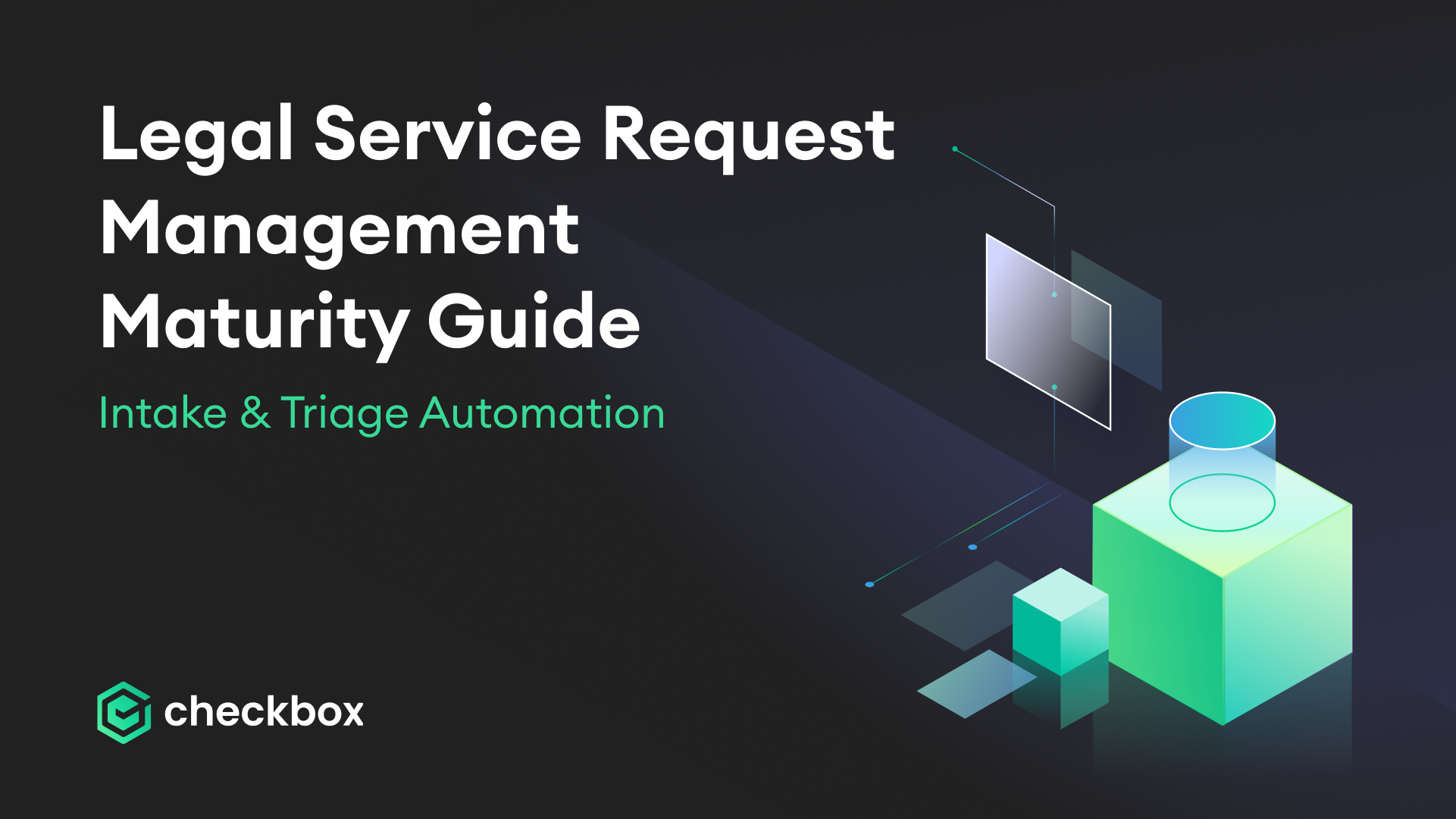
Sign up to our newsletter
Get insightful automation articles, view upcoming webinars and stay up-to-date with Checkbox
Reading time:
[reading time]

When evaluating legal tech, one of the most common questions that comes up is: what is a point solution? And how does it compare to platform solutions?
With so many tools claiming to solve specific problems, it’s easy to get caught in a fragmented tech stack that creates more headaches than it solves.
In this blog, we’ll break down the difference between a point solution and a platform, when each makes sense, and how to prepare your legal operations for the future with the right approach.
The Difference Between a Point Solution vs. Platform
Imagine a point solution as a toy car, and a platform as a set of Lego blocks. A toy car is something pre-designed and ready to play with right out of the box. Lego blocks are a set of interlocking plastic building bricks that you can use to build a variety of things for a variety of purposes (i.e. buildings, animals, figures, vehicles, games, and more).
That being said, the same concept applies when comparing a point solution vs platform solution in legal tech. A point solution is a very specific piece of software, developed for a specific problem, which means you’re getting deep expertise and a very detailed and designed solution for your problem. This is different to a platform solution that is typically described as a robust foundation for you to build solutions on, which not only allows you to solve one specific problem, but also address several others.
When Would You Use a Point Solution Over a Platform?
If you’re debating between a platform vs point solution for your legal team, the answer ultimately depends on your organization’s needs.
There are certain use cases geared towards point solutions that often have uniform requirements across the entire industry.
A strong example of this is bookkeeping. As you vary from organization to organization, the way a company structures balance sheets isn’t going to change. So, if you have a solution that really nails balance sheets, profit and loss statements, transactions, and reconciliations with your bank account, it makes sense to buy an enterprise solution point technology built specifically for financial reconciliation.
However, using a platform would make sense if the process you’re looking to automate is not uniform across the entire industry. A good example of this is customizable workflows. If you think about all the organizations out there, they’ll have procurement teams, finance teams, and legal teams who all have the same functions and processes but different ways of doing things.
If you take for example the legal team, they’ll have NDAs, service agreements, and delegation of authorities in the way they sign off on things. How your NDA looks is different, how your matrix for delegation of authority is different, or how you interface with your finance team on thresholds and who needs to sign off is different.
Thus, a point solution cannot automate these processes because you can’t buy something bespoke and unique to your organization, off the shelf. And often when organizations try to purchase an off-the-shelf product for their specific use cases, they end up having to tailor their own business processes around the technology. This means the organization loses flexibility and often means business users are less open to adopting the tech.
💡Pro Tip: If your legal processes require flexibility, choose a platform solution that offers no-code customization capabilities to boost adoption and avoid costly workarounds in the future.
Consolidation Is Driving Platform Adoption
Another way to see if a point solution or platform solution is right for your organization is to assess your organization’s tech stack and consider if you might have too many tech solutions in place.
An ongoing trend, that has stemmed from IT teams and business units, is the need to consolidate the amount of technology they have because of excess license fees, training fees, and the headache of relationship management with several different vendors.
Consolidating and optimizing one’s tech stack has really pushed organizations to consider platforms over point solutions. Because point solutions only solve one specific problem and in turn, require companies to invest in many different single-use-case tools, leading to higher costs and more extensive training.
Additional Resource: For more information about which platform solutions are best for your organization, learn about the top technology and tools used by lawyers and in-house teams.
To learn more about in-house legal software solutions, such as Checkbox, and how they can benefit your legal team, schedule a call with one of our technology consultants today.
Frequently Asked Questions
What is platform as a solution?
A platform as a legal tech solution refers to a robust software that allows users to build unique workflows and automations as team needs evolve. It allows you to not only solve one specific problem, but also address several others across legal work.
What is a point solution?
A point solution is a specialized tool designed to solve one specific problem or use case, often with deep functionality in that narrow area. It’s most effective for standardized, repeatable tasks, like bookkeeping or e-signature, where requirements are consistent across industries.
What is the difference between a platform and point solution?
The difference between a platform and a point solution lies in scope and flexibility. A point solution addresses a single, specific problem, while a platform provides a flexible foundation that can be configured to solve multiple, evolving problems across workflows.
How do point solutions impact long-term business strategy?
Point solutions can limit long-term flexibility by locking teams into rigid tools that don’t adapt well to changing or unique business needs. Over time, they can lead to a fragmented tech stack that’s costly and harder to scale.

Checkbox's team comprises of passionate and creative individuals who prioritize quality work. With a strong focus on learning, we drive impactful innovations in the field of no-code.
Book a Demo
See the New Era of Intake, Ticketing and Reporting in Action.

.svg)


